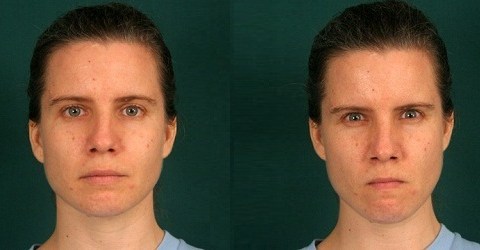Three Ways to Catch a Liar

When we teach people how to catch liars, it takes us 32 hours. And there are over 30 different things you look for. I’ll tell you a couple of them in a minute, but if you’re going to remember them and use them and spot them you need a lot of practice.
I could tell you exactly how to play tennis and win the Olympics, and I could tell you that in ten minutes. But without a coach and a lot of practice it’s not going to be of any use to you. So I’ll tell you a couple of things that, unless you get a lot of practice, they’re not going to be a lot of help.
Micro Expressions
Spotting a micro expression is the single most useful thing. This is an expression that lasts about a 25th of a second. We’ve tested over 15,000 people in all walks of life and over 99 percent of them don’t see them and yet with an hour’s training on the Internet they can learn to see them. So if you want to catch liars, learn how to see micro expressions, use the micro expression training tool on my website.
However, that may only tell you that the person’s concealing an emotion. That’s a lie. It’s not going to tell you how they really feel. It may not tell you that they’re the perpetrator of a crime. Take this example – it’s a terrible example, but I have to use it: my wife is found dead. I will be the first suspect because, regrettably, the person most likely to kill their wife is the husband.
So I’m the first suspect but I love my wife. I didn’t kill her. The police are wasting their time and they’re insulting me. Time is going by and they’re not looking for the right person. I could be furious at them and concealing my anger. And so if you spot my concealed anger, it doesn’t mean I killed my wife. It only means that I’m concealing my anger.
Body Language
If I asked you how many gestures are used in America today, you’d give me about 12, but there are actually 80. And if I showed you every one of those 80, you’d know what they mean.
Now the one that amazingly enough has had an enormous payoff is one of the most common ones we use, which is the headshake: yes, and no. So I worked on the case of an embezzler who had embezzled over $100 million. He was really big time until Bernie Madoff came along. This embezzler had accused people in a number of banks of being in on the deal, which meant those banks would be vulnerable to having to pay for the embezzlement. And when one of the people who he falsely accused was asked, “Did she help you steal the money?” He said, “Yes. Absolutely, she did,” doing a slight headshake, indicating no.
Distancing Language
The best example I have of distancing language was from a fellow in Australia who was making a public appearance on television to ask the public for help to find his missing wife. He said: “I really hope you will help me with this matter.” This matter? Your wife is missing and she might be dead. It turned out, of course, that he had killed her.
A much less severe offense – and some people don’t think there was any offense – was Bill Clinton saying, “I didn’t have sex with that woman.” And then gave her name. “That woman” is putting her at a distance from himself. Now I never will identify someone as a liar on the basis of one clue. I like to have three or four clues and I like to have them, if possible, repeated if it’s an important situation, like giving the police advice about whether this is the suspect who probably committed a murder and whether they should spend more money and time investigating this person.
In my book, Telling Lies, there’s a list of 32 things that you should look for. The book will tell you more about why lies fail and why lies succeed, and why people lie. But as I mentioned earlier, just knowing it isn’t any more than knowing how to play tennis. You need a coach and you need practice. So if you really want to get better then you have to take a course and it takes about four days.
If you’re a parent, don’t be a policeman. Don’t try and catch your kid in a lie. Try and teach them about why they shouldn’t lie and try to help them find a way to achieve what they want without needing to lie; that’s your job as a parent, not to become a good lie-catcher.
In Their Own Words is recorded in Big Think’s studio.
Image courtesy of Paul Ekman.





